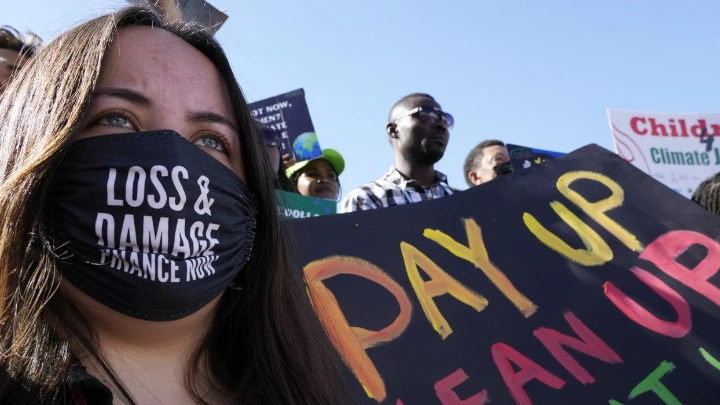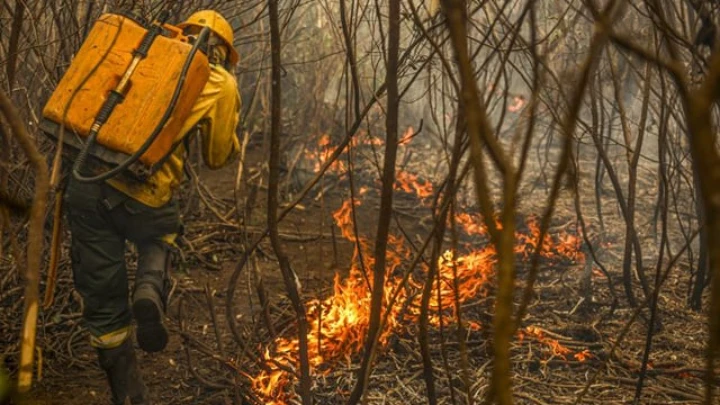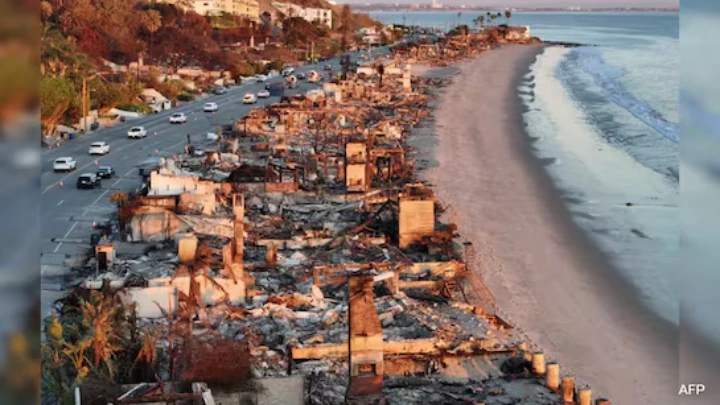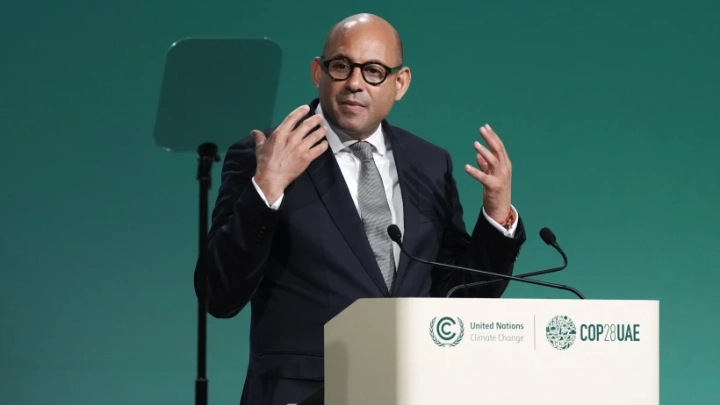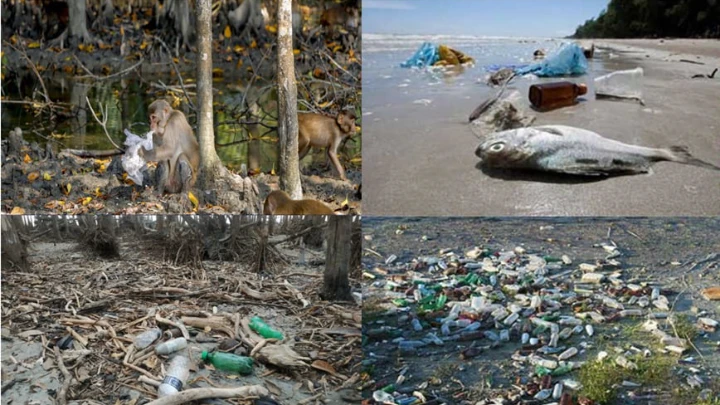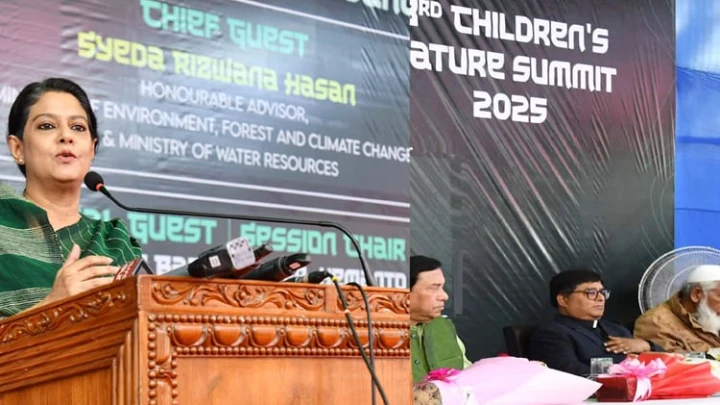COP27 summit strikes historic deal on 'loss and damage' fund
Shining BD Desk || Shining BD
COP27 delegates have signed off on a final draft document. Crucially, they agreed on establishing a "loss and damage" fund that would compensate developing countries hit hardest by climate change.
Climate negotiators in Egypt ended talks in the early hours of Sunday, signing off on a final document with consensus around the break of dawn in Sharm el-Sheikh.
In a historic first, nations agreed to a fund that will help pay for damage caused by climate change to vulnerable countries. The agreement is a big win for poorer nations, who have long appealed for financial aid.
The agreement also kept alive the goal of limiting global warming to 1.5 degrees Celsius (2.7 Fahrenheit) over pre-industrial times, which scientists have warned could soon be surpassed.
The deal, however, does not include any new agreements on curbing fossil fuels or setting new targets to reduce greenhouse gas emissions.
'In the end, we delivered,' says Egypt
COP President Sameh Shoukry, Egypt's foreign minister, praised the efforts of negotiators to reach a final agreement.
"The work that we have managed to do here in the past two weeks, and the results we have together achieved, are a testament to our collective will, as a community of nations, to voice a clear message that rings loudly today here in this room and around the world: that multilateral diplomacy still works," Shoukry said at the end of the summit.
Negotiations were scheduled to end on Friday, but disagreements over key issues led to the conference going into overtime.
Shoukry alluded to "the difficulties and the challenges of our times," but said the international community remained "committed to the fight against climate change."
Related pressures such as rising fuel prices, inflation and the war in Ukraine were seen as an additional test for this year's COP.
"As much as skeptics and pessimists thought that climate action would be taking a backseat on the global agenda, we rose to the occasion, upheld our responsibilities, and undertook the important, decisive political decisions that were not easy," said Shoukry.
He went on to acknowledge that the talks were not easy, involved work "around the clock" and were "strained and sometimes tense," but said "in the end, we delivered."
Host country Egypt faced criticism for its chaotic approach to negotiations, with allegations from negotiating parties that they were not distributing key texts and information, and even that were not acting as an honest broker.
Advocacy groups publicly accused Egypt of being heavily swayed by the oil industry, with some analysis showing increased numbers of fossil fuel lobbyists attending this year.
'Loss and damage' agreement a core breakthrough
Climate negotiators agreed early Sunday morning to establish a fund to compensate developing and climate-vulnerable countries hit hardest by worsening weather extremes.
In the final deal, it states countries "welcome the consideration, for the first time, of matters relating to funding arrangements responding to loss and damage associated with the adverse effects of climate change, including a focus on addressing loss and damage."
The issue was one of the thorniest issues at this year's climate talks.
The breakthrough came after the G77 group of developing nations, who have long called for industrialized nations to pay reparations for climate harms, had the issue added to the official COP agenda for the first time.
Full details still have to be hammered out, but the final deal calls for workshops to be held later in 2023 on how exactly the fund will function.
The agreement on climate reparations payments represented a major U-turn in the talks, after the EU softened its position near the end of the summit. Big polluters had previously resisted a specific fund in fear of being held liable for all climate-related extreme weather events.
Pakistan's climate minister, Sherry Rehman, whose country was hit by massive deadly flooding in the summer, said the fund was not "optimal," but it addressed developing nations' "basic demand" that major historical polluters such as the United States and the European Union help vulnerable countries pay for the damage caused by climate change.
1.5-degree goal remains, but no new emissions curbs
The final agreement recommits to the Paris Agreement goal of limiting global warming to 1.5 degrees Celsius (2.7 Fahrenheit) compared with pre-industrial levels.
The EU threatened to walk away from the negotiations at one point, saying commitments on emissions cuts lacked ambition and would fail to limit warming to 1.5 C — a target reaffirmed at the Glasgow summit in 2021.
Current action has the world on track for up to 2.7 C warming, which would cause widespread drought, water scarcity, hunger and coastal flooding.
The final text, however, does not include new targets for curbing fossil fuels or capping greenhouse gas emissions.
Instead, the text calls on countries "to consider further actions to reduce by 2030 non-carbon dioxide greenhouse gas emissions, including methane." It also repeated calls for a coal "phase-down," as was agreed at climate talks in Glasgow a year prior.
India, backed by the EU and Britain, had insisted that the final text ask countries to phase down all fossil fuel use, instead of just coal. The Glasgow agreement stated a move away from "unabated" coal, with no mention of oil or gas. Unabated coal means burning the fossil fuel without carbon capture and storage.
The weaker language of a phase-down, as opposed to also phaseout, also leaves "tanker sized loopholes" for further fossil fuel projects, said Nikki Reisch, director of climate and energy at the US-based Center for International Environmental Law.
But countries such as oil and gas producing states like Saudi Arabia, the group of Arab nations and China strongly opposed a move to include all oil and gas.
The agreement also, as in Glasgow, calls for a phaseout of fossil fuel subsidies, but included the wording of a push to transition to "low emission energy systems."
This is an "opening door for continued promotion of fossil fuels instead of shift to renewable energy," tweeted Sebastien Duyck, an attorney at the Center for International Environmental Law.
Jennifer Morgan, Germany's special envoy for international climate action and former executive director of Greenpeace, said Saturday afternoon: "The European Union said we want to make sure that the most the vulnerable populations, the vulnerable countries around the world, they're the ones that are supported here through a loss and damage fund."
"We know that we have to keep 1.5 degree in sight in order to keep the losses and the damages in check."
By Alistair Walsh | Tim Schauenberg | Giulia Saudelli
Shining BD

